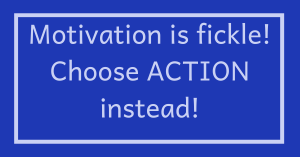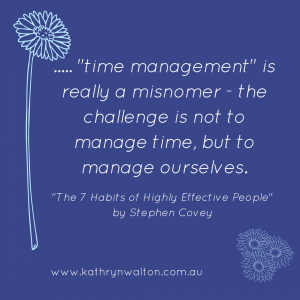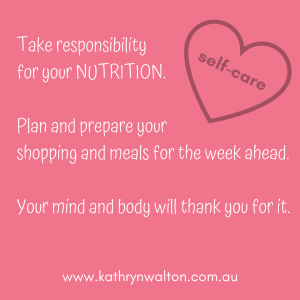If you ever have difficulty getting motivated to exercise, then you need to read these tips!
Motivation is like a part-time friend
“I know I should exercise, but I just don’t feel motivated” is a very common problem. There can be a big gap between knowing what’s good for you, and actually doing it. It’s easy to allow excuses to creep into your life. They become blocks or obstacles to your own health care – it’s a form of self-sabotage. The point is you can’t wait till you feel motivated, and you can’t rely on motivation to keep your exercise routines in place. Motivation is a fickle feeling! It comes and goes like a part-time friend who is sometimes there in your hour of need, but is often nowhere to be seen or heard.
Commitment, not motivation will see you through
If you can’t rely on motivation, then what can you rely on? What’s going to keep you on track to living the health-filled life you want? You need to get real, cut to the core and examine your values, your priorities and the choices you’re making.
If health is one of your values, if it’s very important to you, you’ll make sure that it’s a priority and you’ll take actions that reflect that. For example, when you have to make a choice between exercising and something else such as staying in bed, watching TV or scrolling through social media, you have an opportunity to prioritise what’s most important to you.
So, what’s on your priority list for today?
What’s on your priority list right at this moment?
Where does exercise rank on your actual (not theoretical) list of priorities?
If you’ve identified that health is high on your priority list you need to be committed to it. Commitment, not motivation, will get you to take action. Keep your commitment to exercise as your focus whenever you need to choose how you spend your time and energy.
Tips for staying committed to exercise
- Remind yourself that exercise benefits not only yourself (your physical health and mood) but also those around you. Be the role model you’d like your family and friends to have.
- Have a good look at your daily routine and identify the best time and space for your exercise. It has to be doable and work for you in your situation. Don’t give up – changing routines and creating new habits can take a few weeks to settle in.
- Find or create a tribe of other people who also value exercising. Join a club or online group that shares your goals and can help you stay on track when things get tough.
- Get an exercise buddy so you’re accountable to someone else.
- Schedule your exercise into your diary and let others around you know your plans.
- Organise yourself by getting your clothes and equipment ready the night before and making sure your plans (eg child care, maps, meeting points) are all sorted.
- Pay ahead for your exercise program eg buy a multi-use pass for a swimming pool, gym or yoga classes.
- If your day doesn’t go as planned, don’t opt out of exercise altogether – a 10 minute walk is better than nothing. Doing nothing one day easily leads to doing nothing the next day.
- Reward yourself for being consistent with your commitment but make sure your reward doesn’t sabotage your efforts. You could reward yourself with some new exercise kit rather than with a cream bun and coke.
- Use a calendar, chart or exercise journal to document your commitment and progress.
- Use technology to plan, record (and share if you like) your efforts. There are many apps and devices that can record your steps, mileage and heart rate for example. But if you find yourself stressing or obsessing over them, give them the flick. They’re intended to be an aid not a burden.
- Exercise can become a bit ho-hum after the novelty wears off or when your body has adapted to the intensity and type of exercise you’re doing. Make sure you change it up occasionally to keep your physical and mental health progressing not stalling. See a personal trainer for a new workout, aim for a mix of indoor and outdoor exercise, go walking with a friend, swim in the ocean instead of the pool, dig a new garden bed or do some fencing as a change from lifting weights.
- See yourself as someone on a progressive health journey who values exercise and nutrition rather than focusing on weight loss or physical weakness.
- Use an indoor exercise training plan throughout the week to prepare yourself for a challenging outdoor adventure on the weekend.
- If your exercise session seems too long, too hard or too boring, break it up into segments or sets. Tell yourself “Just get to that next big tree then you can have a rest” and repeat it till you get to the top. Or if you’re swimming, change your stroke every 10 minutes. Or simply stop and give yourself a pat on the back at intervals.
- Set yourself a fitness goal such as entering an event, scaling a mountain you’ve had your eye on for ages, or going on one bush walk every week. Then take little steps towards your goal.
- The best type of exercise is the one you enjoy because it’ll have you going back again and again. Put your worries about what other people might think out of your mind and do what works for you.
- On those days that exercise seems really hard, focus on something enjoyable or pleasurable in your experience. It might be some little flowers growing in the grass, wispy clouds, a soft breeze, the rhythmic beat of your heart, or the strength you can feel in your leg muscles.
- Sign up for a community challenge such as a charity fundraiser or an online challenge to walk or ride or swim a certain number of kilometres in a month.
- Take notice of any injuries and seek expert help before they become a problem.
- Be firm but gentle with yourself. If you’re tired and carrying extra stress, review and adjust your exercise program to suit. If you’re just a bit tired or feeling blah, remember that exercise gives you energy and improves sleep and attention.
- Use visual reminders about your commitment to exercise. Display them as a wallpaper for your computer or phone, stick one on your bathroom mirror, or hang a printed photo or quote in your workspace that keeps you inspired.
The ‘getting motivated to exercise’ trap
Above all, don’t fall into the ‘getting motivated to exercise’ trap. Stay committed to your values and your priorities. Make intentional choices and take deliberate action. Then you’ll savour the benefits of exercise and you’ll be able to let go of your attachment to motivation.
Personal coaching to stay inspired and committed
 Would you like support to tap into your values, work towards a personal goal, overcome the messy obstacles that get in the way, and live your best life? My personal coaching program may be just what you need. Contact me for more information.
Would you like support to tap into your values, work towards a personal goal, overcome the messy obstacles that get in the way, and live your best life? My personal coaching program may be just what you need. Contact me for more information.
Discovering mountain biking as life’s ultimate parallel universe in her middle age, Kathryn Walton shares information and reflections in ‘Daisy Spoke’ that inform, inspire and empower women to a healthy and active lifestyle.








